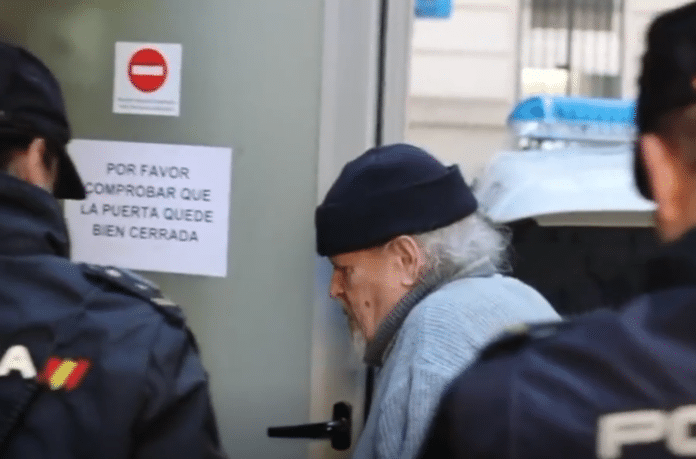
There seemed to be little remorse as, with a brief “yes,” the man accused of murdering and dismembering his partner in Torrevieja admitted to the charges against him during the trial’s first session.
The case, which concerns a violent crime committed in late October 2021, opened Monday at the Alicante Court before a jury. Magistrate José María Merlos presided over the hearing, which focused on jury selection, the presentation of initial arguments by both parties, and a brief statement from the accused.
The defendant, a 73-year-old Finnish citizen residing in Torrevieja, had been in a relationship with the victim for a year and a half before the crime. Reports revealed that months prior to the murder, the accused meticulously planned his actions, recording them on his mobile phone calendar.
These entries detailed his intention to torture, kill, and dismember the victim before stealing money from her bank accounts. After carrying out the crime, the man disposed of her remains in various dustbins around the town. However, the victim’s head and left arm were never recovered.
In addition to his in-court confession, investigators discovered more damning evidence on the defendant’s mobile phone, including diary-like notes documenting his premeditated plan. In these notes, the defendant referred to the victim using derogatory terms such as “disgusting woman” and “man-teaser.”
During her opening statement, the prosecutor presented several of these entries to the jury, illustrating the cold and calculated nature of the crime.
One entry, dated June 2021—four months before the murder—read: “I am going to kill Maija and torture her, but first I’ll upload a photo of us kissing on Facebook.” A few days before the murder, he wrote about killing and dismembering her before taking as much money as possible.
Following the murder, a chilling note on his phone stated: “First day without the anxiety caused by Maija.”
The prosecution argued that these notes, combined with the methodical and brutal nature of the crime, demonstrate clear premeditation and aggravating factors. Upon the defendant’s arrest, the Civil Guard found these messages while examining his phone, further solidifying the evidence against him.
The victim’s body bore numerous stab wounds, which prosecutors claim were inflicted to deliberately prolong her suffering. This, they argue, is an additional aggravating circumstance of cruelty.
When asked in court whether he accepted the charges against him, the defendant responded with a simple “yes.” He initially declined to testify but later clarified that he would only answer the prosecutor’s questions. When asked if he acknowledged the facts of the indictment, he confirmed them but refused to answer any further questions.
The victim, also Finnish, had moved to Torrevieja to enjoy her retirement after years of hard work supporting her two children. Her family, represented by lawyer Juan Chapapría of Chapapría-Navarro & Asociados, is seeking a life sentence subject to review.
Meanwhile, the prosecution has requested a 25-year sentence, citing aggravating factors such as treachery, cruelty, kinship, and gender-based violence, as the crime was committed against her because she was a woman.
Despite the defendant’s confession, the trial will proceed throughout the week, though some witnesses may be omitted. The defence, while acknowledging the confession, denied the charges and urged the jury to carefully evaluate the evidence presented during the trial.
Coming sessions are expected to feature testimony from individuals who discovered the victim’s remains in containers, one of the victim’s sons who travelled from Finland to attend the trial, staff from the store where the defendant purchased a saw and garbage bags the day before the crime, and members of the Civil Guard involved in the investigation.
The confession may be an attempt by the defendant to mitigate his sentence, though Chapapría, the family’s lawyer, suggested that the punishment will likely reach 22 and a half years. The severity of the crime, coupled with its premeditated nature and the suffering inflicted on the victim, underscores the gravity of this case as the trial continues.





